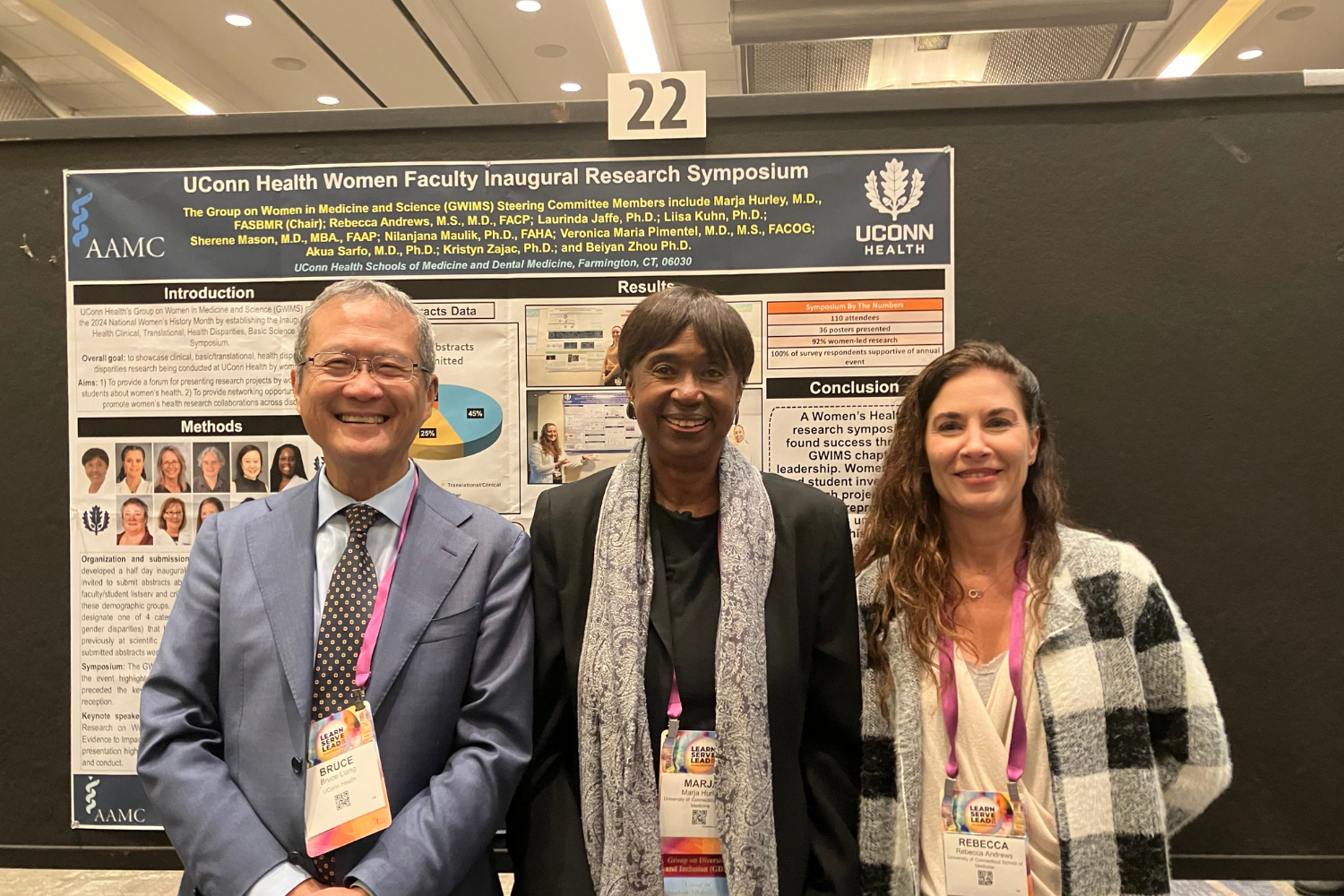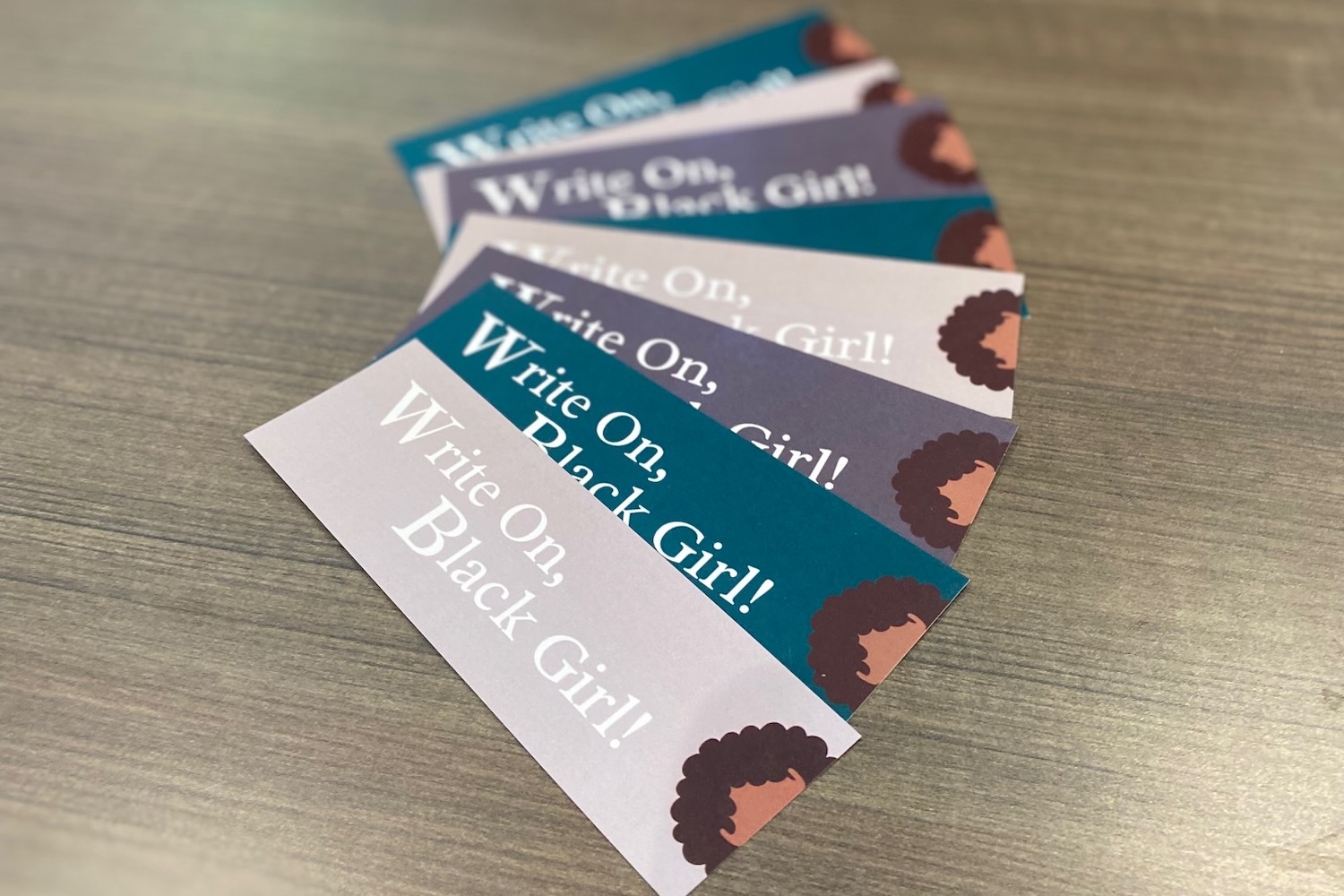This year saw the second installment of Messing About in Boats at UConn Avery Point, which took place on September 13, and included catch-and-release sportfishing, kayaking, nature walks, a scavenger hunt, a research seminar, exploring, and a beach cleanup. The event is open to UConn students, faculty, and staff regardless of experience with all necessary equipment provided.
The event’s name comes from a quote from Kenneth Grahame’s “The Wind in the Willows,” where one character conveys his love of adventure on the water by saying “There is nothing – absolutely nothing – half so much worth doing as simply messing about in boats.”
For a gathering aimed at getting people out on the water to experience that joy and to take in the beautiful scenery, it is a great quote to draw inspiration from.
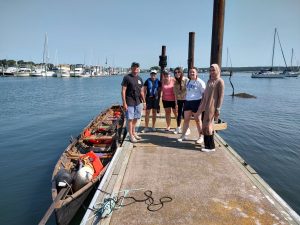
As part of the outreach efforts of the Connecticut National Estuarine Research Reserve, Messing About in Boats is made possible through collaboration with Connecticut Sea Grant, Project Oceanology, The John Gardner chapter of the Traditional Small Craft Association, New London Currach Rowers, UConn Department of Marine Sciences, UConn Avery Point’s Waterfront Program, and UConn Avery Point campus.
Larissa Graham ’02 (CLAS), education coordinator with the CT NERR says the organizers were looking for a way to get people into the Reserve, however, they knew they needed to get creative since most of the reserve is on the water.
Officially designated in 2022, the Reserve includes 52,160 acres of land and water for research and recreation. The UConn Avery Point campus serves as the reserve’s headquarters and was the center of action for the Messing About in Boats event.
“Only about 2,000 acres of the Reserve are land-based. The other 50,000 acres of the Reserve are water, which makes outreach challenging. We came up with this idea when we were trying to think of ways we could get people out on the water, to enjoy the Reserve” says Graham.
After a successful launch in 2023, many attendees returned to mess about again this year.
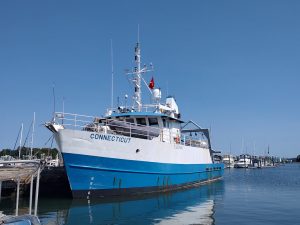
“One interesting thing we noticed last year was that many of the participants had never been rowing, kayaking, or fishing. Some participants were very nervous to get in boats, but it was rewarding because at the end of the day, people were on the water, relaxed, and enjoying the activities. This year, we asked people if they were new to the activities we were offering. More than half were and so we knew folks might need a little more explanation and guidance.”
Graham says the event, as well as the planning process, was a great way to build community between the different sponsors, within the UConn community, and with the greater community.
This year’s lineup included a new group from the community, the New London Currach Rowers, who brought a traditional Irish currach, a boat based on a 2,000-year-old design with a material stretched tight over a wooden frame.
Event participants could try rowing the currach or one of the many dories built by the John Gardner chapter of the Traditional Small Craft Association. The JGTSCA has a shop on the campus where, in the past, faculty, staff, and students worked on building and restoring boats. UConn Department of History Professor Matthew McKenzie is the boat shop coordinator and says the boats were designed based on a boat that washed ashore on campus after a storm. They restored that boat and then decided to build more, which they call ‘Hybrid Avery Point Dories,’ with the help of local middle school students.
Attendees could also join Waterfront Programs Manager Prescott Littlefield in kayaking around Avery Point or out to nearby Pine Island for lunch.
For those keeping on land, the event included a science talk given by UConn Department of History Professor Helen M. Rozwadowski, who spoke about the history of oceanography. The walking tour was led by Department of Journalism Professor in Residence Gail MacDonald about the Plant family who originally owned the Avery Point property and built the iconic Branford House.
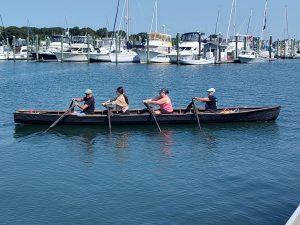
Those interested in trying their hand at sportfishing set off for Long Island Sound onboard Project Oceanology’s (Project O) research vessel where they caught, identified, and released different species of fish while sharing information about the marine environment. Participants also helped with a beach cleanup on Pine Island, led by Project O. Graham says they keep data on how much trash is collected, along with the date of collection.
Whether attendees stayed on land or spent time on the water, Messing About on Boats was an opportunity to experience some of the interconnections between history, community, research, and educational possibilities in the Connecticut National Estuarine Research Reserve and Long Island Sound.
Messing About in Boats is sponsored by the Connecticut National Estuarine Research Reserve, Connecticut Sea Grant, Project Oceanology, New London Currach Rowers, The John Gardner chapter of the Traditional Small Craft Association, UConn Department of Marine Sciences, UConn Avery Point’s Waterfront Program, and UConn Avery Point campus.
